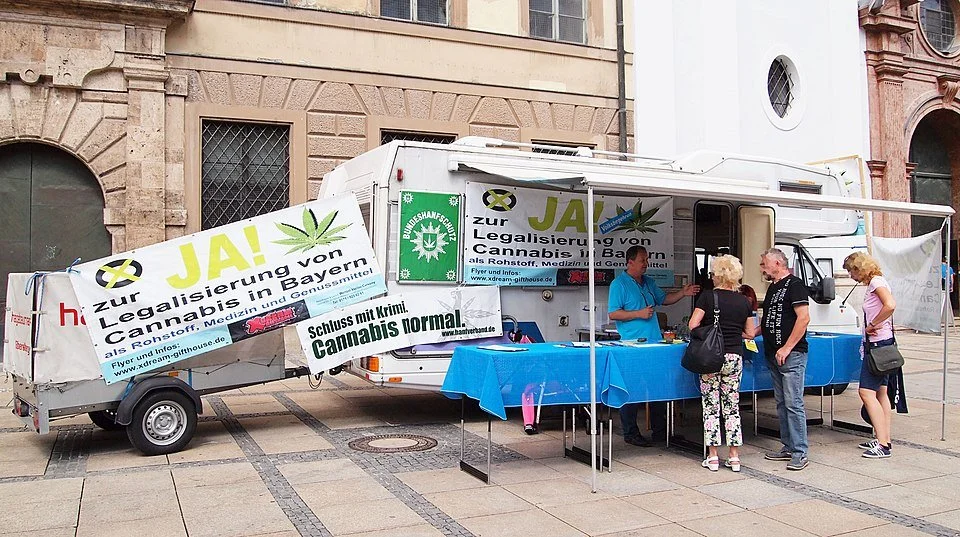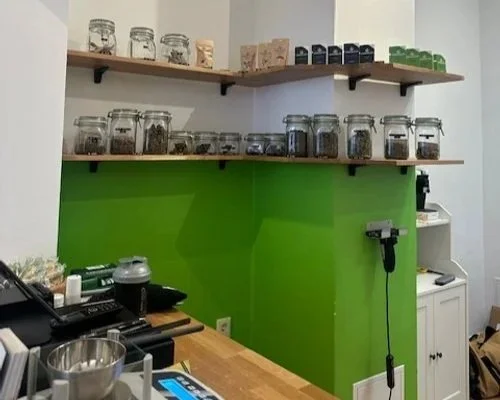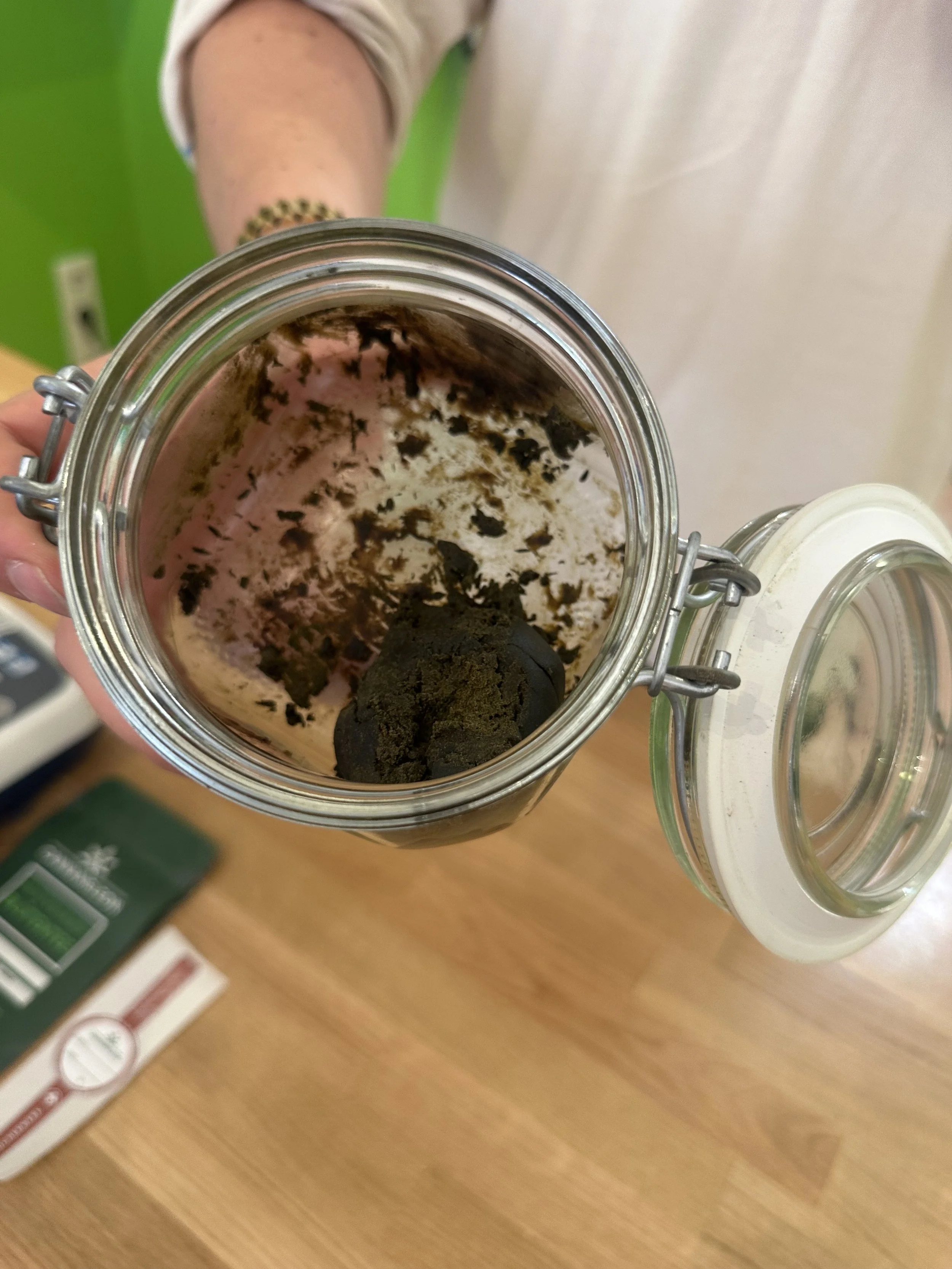Global Cannabis : Germany Goes Green
In most of the United States, cannabis is fairly accessible, potent and we have endless varieties to choose from. In Massachusetts, we are blessed with a more mature market than other states, with high standards for testing and quality. But it's rare that other places around the world have the same accessibility to top shelf products that we do.
So what about other countries? Where do they stand on legalizing cannabis, and how do their cultures interact with this joyous plant? Well, we have more commonalities than we might think.
One of our employees at Starbird recently visited Germany. With the largest economy in Europe, Germany is renowned for their technological advancements and eco-friendly lifestyles. It is one of the most promising and rapidly evolving foreign cannabis markets. Let’s give a rundown of the rules and revels of cannabis in Deutschland!
What Is the Current Legal Status of Cannabis in Germany?
Cannabis was legalized for personal use by adults 18 and older in Germany under the German Cannabis Act (Cannabisgesetz or CanG), which officially went into effect in April 2024. This made Germany the 9th country in the world to legalize recreational cannabis — and by far the largest nation in Europe to do so. Until now, only smaller countries like Malta, Luxembourg, and Moldova had taken the leap.
With the new law, cannabis was reclassified from a narcotic to a medicine, marking a major shift in policy. A 2024 study estimated that around 4.5 million Germans consume cannabis recreationally.
Oversight of the new system is split between several agencies, including the Federal Institute for Drugs and Medical Devices (BfArM), the Federal Centre for Health Education, and local health authorities working alongside the police.
When it comes to possession, the law sets clear limits: adults may carry up to 25 grams in public — just 3 grams shy of a full ounce. That’s more than enough joints to get through the day! At home, the limit increases to 50 grams, giving people a bit more flexibility. In practice, these limits aren’t overly strict; much like in Massachusetts, they’re designed mainly to undercut the black market and prevent large-scale resale or export.
Health Minister Karl Lauterbach defended the reforms by pointing out that youth cannabis use had already been rising sharply under prohibition, fueled by the black market. He argued that the conditions of illegal trade were “unacceptable,” and that legalization paired with regulation offered a safer, more responsible alternative.
Public Consumption Rules
Unlike in Massachusetts (and many U.S. states), Germany allows cannabis consumption in most public areas. In fact, even before legalization, many police officers looked the other way when it came to people smoking in public.
However, much like the U.S., regulations can vary by federal state (Bundesland). For example, Bavaria is far more conservative than other regions. At Munich’s Oktoberfest, Bavaria explicitly banned public cannabis smoking and vaping. The state also enforces stricter rules on cannabis clubs, with tighter oversight on how they cultivate and distribute cannabis to members.
It remains illegal to smoke in front of minors, so all smoking must be done out of sight (about 100 meters away) from schools, schoolyards, playground and youth centers. There are also many pedestrian zones where it is illegal to consume between 7am-8pm. So, as long as Germans aren’t lighting up in the middle of the street filled with people and are away from children, they are most likely fine in the eyes of the law.
“Munich – Cannabis Legalization Stall” by Richard Bartz, via Wikimedia Commons. Licensed under CC BY-SA 2.5.
What Are German Cannabis Social Clubs?
There are currently no recreational dispensaries or online businesses where consumers can legally purchase cannabis. Instead, adults who want legal access must join a non-profit cannabis club.
These Cannabis Social Clubs (CSCs) are one of the two pillars of the CanG legalization model. They are strictly regulated, adult-only associations capped at 500 members each. The idea is to promote safe, community-based cannabis use with transparency and accountability around cultivation. Since clubs must operate on a non-profit basis, cannabis is generally distributed at cost — making it both affordable and accessible for members.
Unlike prohibition, which tends to isolate like-minded people, cannabis clubs are designed to foster connection and knowledge-sharing. Members exchange growing techniques, discuss safe consumption practices, and build a sense of community. Some clubs even go further: for example, Cannabis Social Club Greeners in Munich hosts community events to strengthen bonds between members and runs prevention-focused programs to help newcomers learn about responsible cannabis use.
One strange twist: while clubs cultivate and distribute cannabis, you can’t actually consume it on-site. Members can only pick up their supply, share experiences, and engage with the community.
CBD Shops in Germany
For those looking for a lighter option, CBD shops are completely legal and easy to find. These shops sell cannabis flower containing less than 0.2% THC, along with other herbal and wellness products. While the flower won’t deliver much of a psychoactive high, it can still provide benefits from other cannabinoids, such as relief from inflammation, stress, or muscle aches.
Our assistant manager Jay visited one of these shops and tried both CBD flower and a CBD-based Afghan hashish. While the products didn’t get them high, the experience still offered rich flavor and relaxing effects — enough to ease anxiety and promote restful sleep. The hashish really helped them wind down when they were on their vacation, which was also a tolerance break.
Walking into these CBD shops feels a lot like stepping into an American dispensary. Many have shelves lined with jars of flower, showcasing popular strain names familiar to U.S. consumers. Jay even managed to grab a couple grams of Ice Cream Cake, along with seeing classics like Gelato, Mimosa, and Haze on display.
So, while Germany’s cannabis laws don’t allow dispensaries just yet, the rise of cannabis clubs and CBD shops is keeping the culture alive — and paving the way for what could eventually become a thriving legal market.
If you are looking to visit, unfortunately consuming cannabis is restricted to those who are German citizens or those that have lived in Germany for at least six months. Even though we might not be able to legally partake as visitors, we can celebrate and support the progressive legislation for our friends on the other side of the pond.
A CBD store in Heidelberg, Germany! No THC, but a bunch of nice, relaxing products.
Can You Grow Your Own Cannabis Plants in Germany?
Yes! Anyone 18 and older can grow up to three flowering cannabis plants at their private residence for personal use. While this is only half the amount an individual adult can grow in Massachusetts, it’s still a huge step forward for cannabis laws in Europe.
Enforcement of the rules can be strict. You must stick to the three-plant limit, keep your plants out of public view, and make sure they are inaccessible to minors. This means they should be behind fences outdoors or inside secure grow tents if grown indoors.
The type of plant is not restricted. You can choose auto-flowering varieties or traditional photoperiod strains. For indoor grows, cultivators are strongly encouraged to use carbon filters or odor-control systems to prevent the smell from disturbing neighbors.
Most importantly, the cannabis harvested from these plants is strictly for personal use. Exceeding the three-plant limit or failing to secure your grow can lead to fines and confiscation of the plants. Selling cannabis to others is treated much more seriously and can result in harsh criminal penalties.
CBD based Afghan Hash in German shop.
Will Germany Have Recreational Dispensaries?
Germany’s government originally planned to roll out a fully commercial recreational cannabis market with licensed dispensaries — beautiful and unique shops like Starbird in Salem. However, those plans were blocked by the European Commission, which raised concerns about illegal exports to neighboring countries where cannabis remains strictly prohibited.
Despite the setback, the German government hasn’t abandoned the idea. Instead, it introduced a second pillar of the Cannabis Act (CanG) alongside the Cannabis Social Club model: a pilot program for recreational sales. This program is modeled after Switzerland’s cannabis trials and aims to study how legal retail sales affect public health, consumer behavior, and the black market.
The first pilot dispensaries are expected to launch in late 2025 or early 2026. Only selected regions that volunteer to participate will be allowed to open shops, with Berlin, Cologne, and Frankfurt already showing strong interest.
Adults 18 and older living in these pilot regions will be able to purchase cannabis at licensed retail stores. The offerings will be limited to domestically cultivated flower — no imports, no edibles, and probably no live hash rosin just yet. The program will run for five years, with ongoing evaluations by research institutions to track its impact.
If the results show success — reducing the black market and promoting safer use — Germany could move one step closer to a nationwide dispensary system. In that case, don’t be surprised if hot, trendy cannabis shops like Starbird start popping up in German cities.
Advertisement for Dusseldorf’s Canna Fair found in a grocery store magazine.
Is Medical Cannabis Still Available in Germany?
Yes! Germany has had a medical cannabis program since March 2017, when the government officially allowed doctors to prescribe it as a treatment. Prescriptions can be written for a wide range of conditions, including chronic pain, anxiety, inflammation, multiple sclerosis, epilepsy, and even the side effects of chemotherapy. This broad scope makes cannabis more accessible to patients compared to many other countries, where it’s often restricted to only a handful of diagnoses.
Since domestic cultivation remains very limited, Germany relies heavily on imports to supply patients. Most medical cannabis comes from Canada, the Netherlands, and Portugal, though other countries like Denmark and Uruguay also contribute. Despite this dependence on imports, Germany has developed into the largest medical cannabis market in Europe, with more than 200,000 registered patients.
Patients can obtain their prescriptions through pharmacies, which dispense cannabis in several forms: dried flower, extracts, oils, and capsules. Importantly, for certain conditions, cannabis may even be covered by public health insurance. While coverage requires a doctor’s justification and approval from the insurer, this system makes treatment far more affordable and accessible than in most other parts of the world.
Germany’s medical program has not only improved access for patients but also positioned the country as a leader in Europe’s cannabis industry, attracting international producers and setting the stage for future reforms.
What Are the Penalties for Breaking Cannabis Laws in Germany?
Even though cannabis is legal in Germany, there are still firm laws surrounding it. Most penalties are handed out in Germany because an individual may possess more than 25 grams on their person or more than 50 grams at their home. The Polizei assume intent to sell, which comes with harsh consequences.
The strictest laws for cannabis in Germany are for driving under the influence. There is a zero tolerance policy for having THC in the bloodstream while driving. Even if you’d smoked hours before and are sober, trace amounts of THC can lead to suspended licenses, fines, mandatory psychological assessments and increased insurance cost. This is seen as the harshest rule of all since it directly impacts your freedom of mobility or even your career. Good thing most German cities are very walkable and have great train systems, so this is an easy law to avoid. Stay under the limits, keep weed away from children, and drive sober. Alles ist gut.
How Does Cannabis in Germany Compare to Other European Countries?
You can compare Germany’s approach to cannabis with other countries in the EU. Luxembourg legalized in 2023, but only for small home grows — no shops or clubs yet. Malta took a similar approach in 2021, creating non-profit cannabis clubs like Germany, though on a much smaller scale. Moldova joined the list in 2024, but as one of Europe’s smallest nations, its market is tiny compared to Germany.
That’s what makes Germany different. It isn’t just another legalization story — it’s the largest test case yet for European cannabis reform, with a massive population and a central role in the EU. If legalization can work here, it could set the tone for the rest of Europe. Danke schön, Deutschland!
Prices are also a point of difference. In Germany, cannabis from social clubs is sold at cost, making it more affordable than pharmacy-grade imports seen in medical-only markets like Italy or Poland. Potency rules are more defined, too: adults 18–21 face lower THC caps, while those over 21 have access to stronger flower — a balance most other countries haven’t implemented yet. This is similar to their alcohol laws, because people 16 and older can purchase beer and wine, but have to wait until they are 18 to purchase spirits. Sounds fair to us!
Culturally, many Germans already embrace a liberal, eco-friendly, and community-focused lifestyle, which blends naturally with cannabis culture. From social clubs to home grows, legalization here isn’t just about access — it’s about building a responsible, sustainable, and community-driven cannabis model that could inspire the rest of Europe.
“Cannabis Brandenburg Gate (2024-03-31)” by Leonhard Lenz, (C0 1.0).
What Is the Future of Cannabis in Germany?
Germany has long been known for its thriving economy and industrial strength. By integrating successful retail cannabis across its regions, the country could unlock an entirely new market with massive potential. While no one knows exactly when or how the pilot dispensaries will officially launch, we can confidently anticipate that they’ll bring positive change to both consumers and the broader economy.
Cannabis reform in the United States evolved rapidly, creating one of the strongest markets in the world. Germany’s cautious but progressive approach could do the same for Europe, reshaping the continent’s contribution to global cannabis culture.
Right now, many parts of Europe still hold a conservative, fear-based perception of cannabis, viewing it solely as a dangerous drug that threatens youth. Germany challenges that narrative. As one of Europe’s largest and most influential nations, its decision to move toward legal, accessible cannabis represents a significant cultural shift.
In the U.S., we enjoy cannabis for leisure, mental health, and physical wellness. Why should other countries be without those same benefits? With Germany leading the way, the future of cannabis in Europe looks brighter than ever. Who knows — in the years ahead, we might all be lighting up in Berlin’s techno clubs or sharing bong rips in the Alps.
Fly high!
FAQs: Cannabis Legalization in Germany
Is recreational cannabis legal in Germany?
Yes. As of April 2024, Germany legalized recreational cannabis for adults 18 and older. Adults may possess up to 25g in public and 50g at home. Consumption is allowed in most public spaces, though not near schools, playgrounds, or youth centers.
What are Cannabis Social Clubs in Germany?
Cannabis Social Clubs (CSCs) are nonprofit organizations where adults can legally access and share cannabis. Members (up to 500 per club) participate in community-based cultivation and distribution, but consumption on-site is not allowed.
Can tourists or visitors legally buy or use cannabis in Germany?
No. Legal cannabis access in Germany is currently limited to residents who have lived in the country for at least six months. Tourists cannot legally purchase or join Cannabis Social Clubs, though public consumption rules are generally relaxed.
Can you grow your own cannabis plants in Germany?
Yes. Adults 18+ can legally grow up to three flowering cannabis plants at home. Plants must be se






